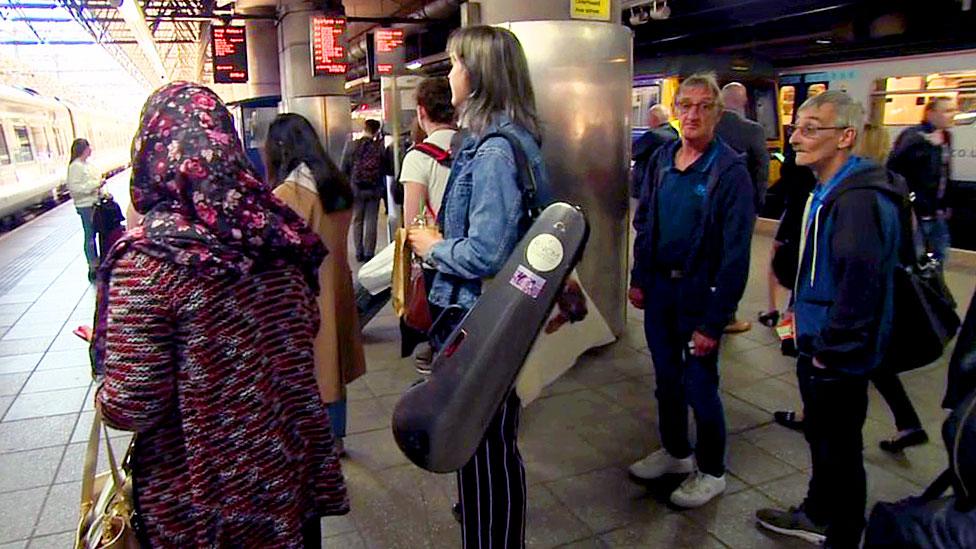Rail fares rises: Grayling pleads with unions and train firms
- Published
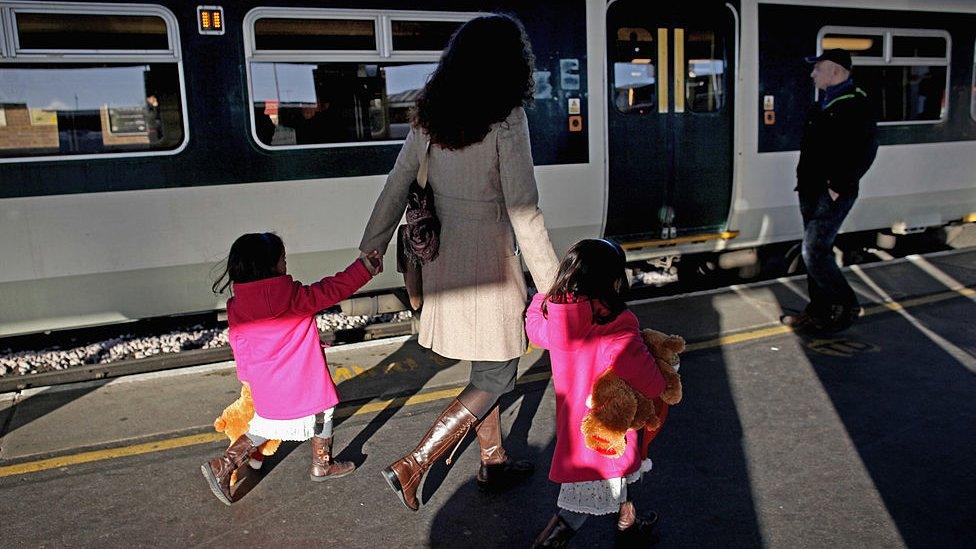
The rail industry should change how it calculates fare rises and staff wages to cut costs for passengers, Transport Secretary Chris Grayling has said.
He has asked train operators and unions to use a different, lower, inflation measure to set pay and fare increases.
The RMT union said it opposed Mr Grayling's call - made hours before January's rail fare rise is announced.
The shadow transport secretary said Mr Grayling "had the power to enforce this, he's just choosing not to."
"The truth is that our fragmented, privatised railway drives up costs and leaves passengers paying more for less," Andy McDonald added.
Mick Cash, leader of the Rail, Maritime and Transport union, said it would fight any attempt to impose a "pay cap" on its members in a drive to protect private train company profits.
"This is a basket-case government and a lame duck transport secretary continuing its all-out war on staff and passengers alike," he added.
Fare rise due
Fares are expected to go up by 3.5% at the start of the next year.
The exact increase will be announced on Wednesday when official inflation figures - used to set the price increases - for July are published.
Economists are predicting that the Retail Prices Index (RPI) measure of inflation - the number used by the Department for Transport to set rail fare increases - will increase by 3.5%.
This year rail fares rose by 3.6% - the biggest jump for five years.
'Keep costs down'
Mr Grayling said he wanted to see "lower levels of increases for passengers in future".
He has asked train operators and unions to use a different inflation measure, the Consumer Prices Index (CPI), to determine rail fare and wage increases.
This is lower than the current tool used, the Retail Prices Index (RPI), which includes mortgage costs.
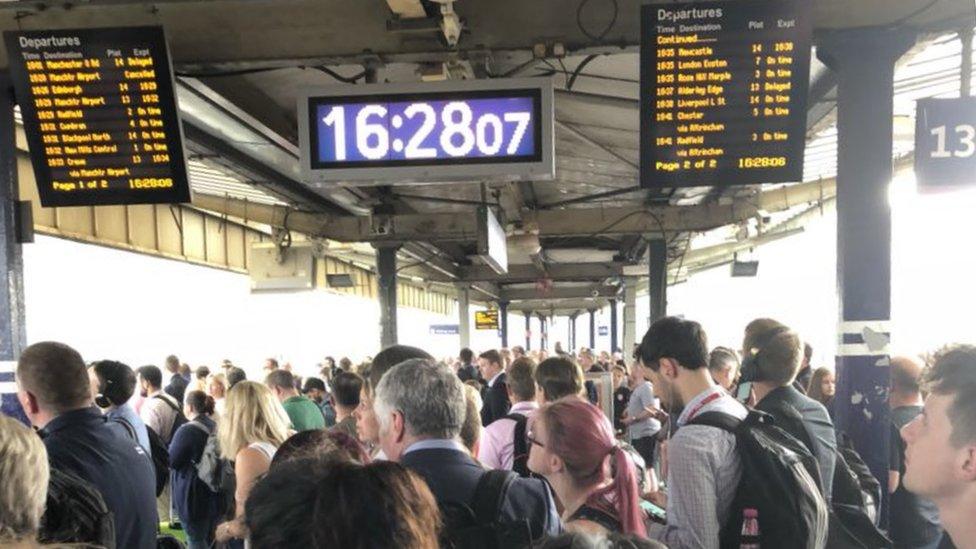
Rail passengers have faced ongoing delays this year
"I support paying rail staff decent wages for the hard work they do, but I also now believe it is important that pay agreements also use CPI and not RPI in future," he said.
Mr Grayling urged the rail companies' membership body the Rail Delivery Group to help the government move towards using CPI for future pay deals.
He said the move would help the industry to "keep costs down".
The letter was sent to all the rail unions, with a separate letter sent to Paul Plummer, the chief executive of the Rail Delivery Group, asking for his support.
The TUC union earlier calculated that rail fares had risen over twice as fast as wages over the past decade.
Wednesday's fare hike comes after a summer of chaos for many train customers, after a rail timetable overhaul saw scores of cancellations and delays.
- Published13 August 2018
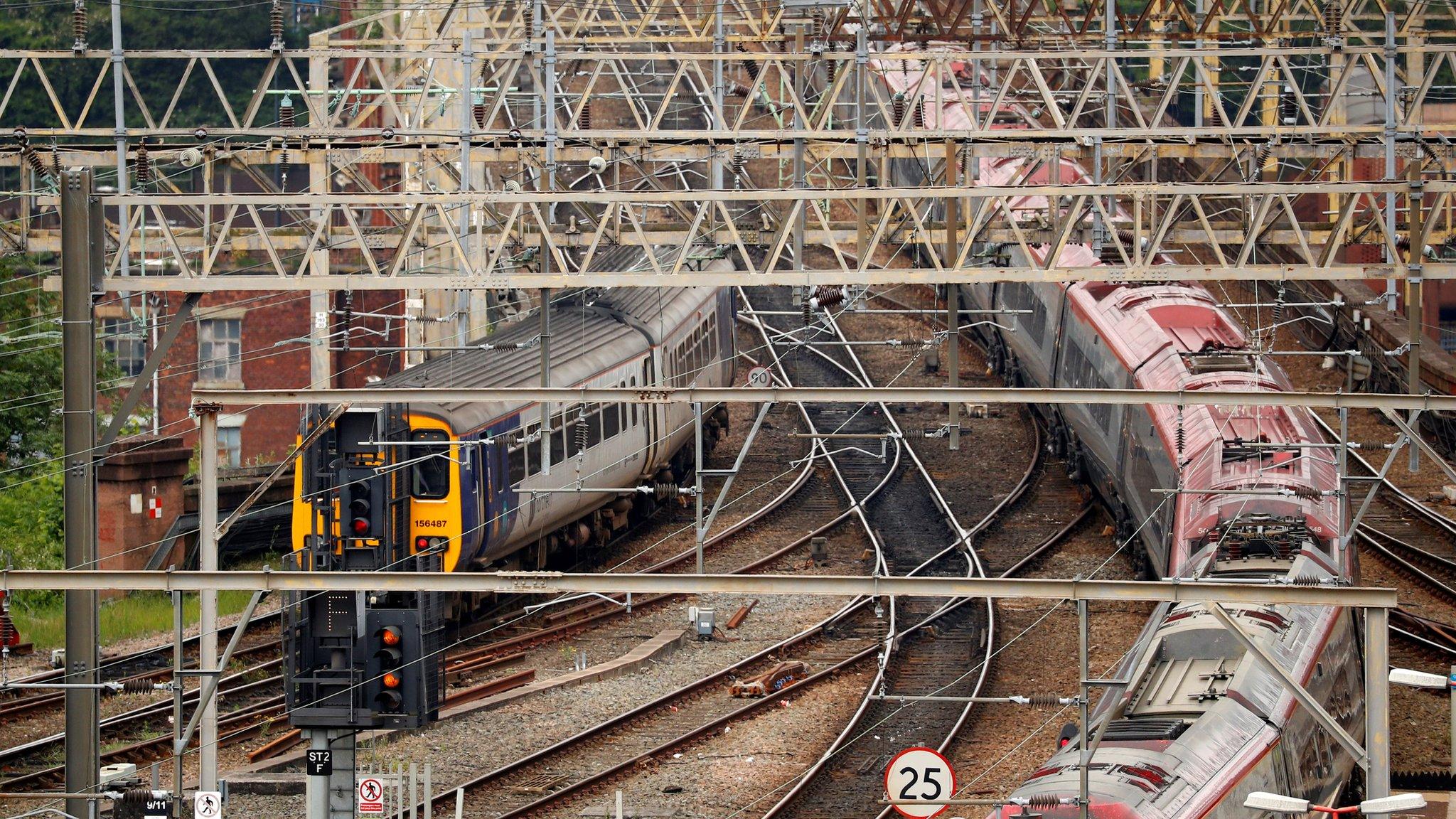
- Published10 July 2018
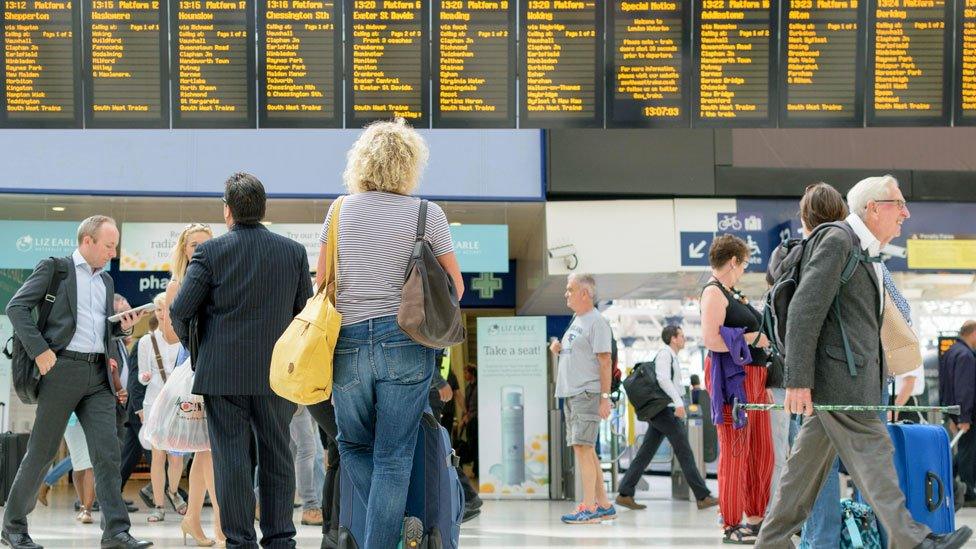
- Published4 June 2018
